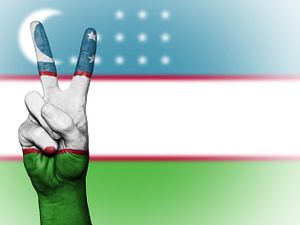At the United Nations this past May, Uzbek Deputy Justice Minister Mahmud Istamov committed the authoritarian regime he serves to over 200 reforms proposed by the UN – except for one key provision that would have decriminalized homosexuality. As Istamov told reporters, “This is not on our agenda. We have not accepted this recommendation. This is not a topical subject for us.”
This opinion is a symptom of a broader disregard for LGBT rights. Uzbekistan’s notorious “Article 120” – the criminal ban on same-sex activity – has fueled government officials’ ridicule, extortion, and persecution of LGBT individuals for decades. In recent months, the international press has largely ignored this history, focusing instead on the government of Uzbekistan’s positive, yet often halting, progress on other reforms.
Since Shavkat Mirziyoyev took control of Uzbekistan after the death of long-time dictator Islam Karimov in December 2016, there was little expectation of significant social and political change. However, since taking office, Mirziyoyev has agreed to a litany of UNDP and USAID demands for an end to child labor in cotton fields, the release of political prisoners, and a better environment for NGOs.
But LGBT rights is an issue that, more than many others, illuminates the potential for democratic change. On the surface, the Mirziyoyev regime, like the Karimov regime before it, has little interest in decriminalization of same-sex relations. Yet at the same time, the Uzbek regime wants to be seen as less authoritarian in order to reduce the country’s economic isolation from the West. Uzbekistan’s urgent need to achieve this economic rapprochement, combined with a smart deployment of U.S. and European aid, could tip the scales toward liberalization.
The United States should hold a firm line on the decriminalization of same-sex relations as a precondition for aid and the reduction of sanctions. However, as the Trump administration continues to deprioritize LGBT rights, its European allies, such as the United Kingdom and the Netherlands, could pave the way in Uzbekistan. The European Union requires candidates for EU accession to institute anti-discrimination legislation for LGBT people; why not require basic decriminalization to receive EU aid?
If we fail to hold this line, we could see stories that mirror the horrors two years ago in Chechnya and Azerbaijan, when police in both republics coordinated the arrest and torture of hundreds of LGBT people. This month, Chechen President Ramzan Kadyrov expanded his anti-gay purge with tacit approval from Moscow, rounding up more than 40 people and torturing two of them to death. As awareness of queer issues increases with the globalization of the internet, LGBT people become easy targets, often used as scapegoats to distract from government failures.
With a rise in awareness, violent attacks against LGBT people in Uzbekistan are increasing. One transgender woman, identified only as “K,” told Radio Free Europe/Radio Liberty she had been held, tortured, and raped by Uzbek police several times from 2014 to 2017 for refusing to out other LGBT people. Hate crimes against LGBT Uzbeks, such as the beating of a gay man in the Ferghana region in September 2017, are often recorded and posted online. The Mirziyoyev regime, instead of investigating or denouncing these attacks, discouraged posting videos online because of their negative impact on foreign tourism.
While social media platforms are often used to spread hate against LGBT people, Facebook, Instagram, and YouTube also connect young people with role models for change. In Uzbekistan, the United States and its allies should provide funds to expand access to the internet and social media, especially for rural youth, helping to ameliorate the isolation LGBT Uzbeks face on a daily basis.
The fight for LGBT rights in Uzbekistan is especially important now because, in the past few years, countries throughout the former Soviet Union have considered implementing laws modeled on Russia’s 2014 “gay propaganda” bill, which banned the “promotion of non-traditional relationships” to minors. One of these copycat bills, which would go further and ban all information on same-sex relationships, is currently under consideration in Kyrgyzstan. Decriminalization in Uzbekistan would represent a step forward for the entire region and might restrict malign Russian influence on neighboring countries’ paths to social reform by providing a local alternative path.
Decriminalization could also provide the Mirziyoyev regime with socioeconomic benefits: laws such as Article 120 have a negative impact on tourism and foreign investment. Businesses are wary to invest if their LGBT employees are at risk. Criminalization of same-sex relations, alongside other bans on normal social behavior, also encourages corrupt officials to blackmail LGBT citizens. Uzbek activists report to Human Rights Watch that police use information obtained from torture to create a cycle of extortion against LGBT Uzbeks, threatening to imprison them if they refuse to pay large bribes.
Pressure on Mirziyoyev’s regime for decriminalization of homosexuality is a chance to make an impact not only for LGBT rights in Uzbekistan, but also on the entire reform process. The United States and its allies should promote LGBT rights reform alongside economic liberalization and the expansion of freedom of expression.
James Reston is a researcher based in Washington, DC, whose work focuses on internet freedom, corruption, human rights, and security.

































